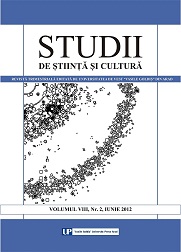Universalitatea operei argheziene: înnoirea expresiei poetice şi reflectarea ei în traduceri
The Universality of Tudor Arghezi’s Work: Translating the Renewed Language of Poetry
Author(s): Mirel AnghelSubject(s): Literary Texts
Published by: Editura Universităţii Vasile Goldiş
Keywords: Tudor Arghezi; translation; Years of Silence; Tinca; Rada; traduction; les Années de la silence; Tinca; Rada; traducere; Anii tăcerii; Tinca; Rada
Summary/Abstract: The work of Tudor Arghezi was a phase in the Romanian literature during which the poetic language was renewed. The poet stressed the importance of the expressive power of the word in creating new images. The universality of the Arghezian lyric was imposed in the literary world after his second volume of poetry, «Flower of Mildew» (1931). Translations were the only way for the Romanian poet to escape the «literary exile» in which he was held by the Communist political regime between 1948-1956. He was allowed to publish only by translating the work of French (Francois Villon, Baudelaire, Rimbaud, La Fontaine, Anatole France) and Soviet writers (Krîlov, A.I. Cuprin, M. Saltâkov-Scedrin). Starting with 1956 the Arghezian poetry finds its way to other cultures through translations made in English, French, German, Hungarian, Greek, Swedish, Polish, Russian etc.
Journal: Studii de Ştiinţă şi Cultură
- Issue Year: VIII/2012
- Issue No: 02
- Page Range: 89-97
- Page Count: 7
- Language: Romanian

